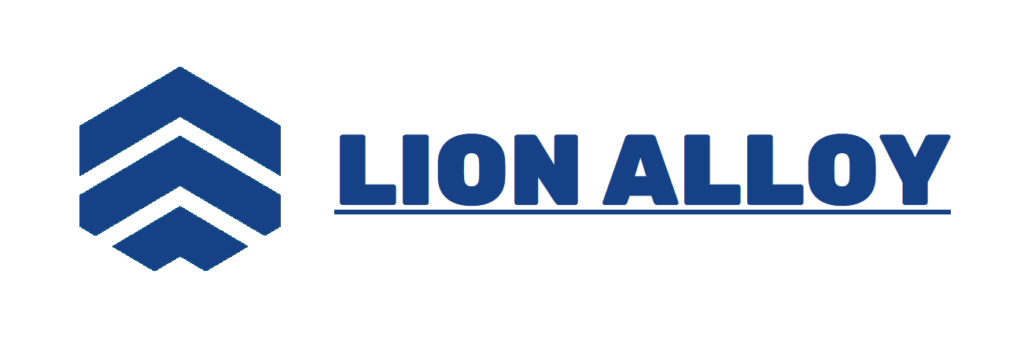UDIMAR® Alloy 300 (UNS K93120) Product Introduction
UDIMAR® alloy 300, designated as UNS K93120, is a high-strength nickel-based superalloy known for its exceptional mechanical properties and corrosion resistance. This article provides a comprehensive introduction to UDIMAR® alloy 300, covering its chemical composition, mechanical properties, performance at different temperatures, industry applications, shapes and sizes, production standards, welding and processing capabilities, advantages and disadvantages, and a comparison with similar alloys.
Chemical Composition
UDIMAR® alloy 300 is primarily composed of nickel with significant additions of cobalt, chromium, molybdenum, and other elements to enhance its mechanical and thermal properties:
| Element | Composition (%) |
|---|---|
| Nickel (Ni) | 50.0 – 60.0 |
| Cobalt (Co) | 18.0 – 22.0 |
| Chromium (Cr) | 12.0 – 15.0 |
| Molybdenum (Mo) | 2.0 – 3.0 |
| Iron (Fe) | 5.0 – 8.0 |
| Titanium (Ti) | 1.0 – 2.0 |
| Aluminum (Al) | 0.1 – 0.5 |
| Carbon (C) | 0.05 max |
Mechanical Properties
UDIMAR® alloy 300 exhibits excellent mechanical properties suitable for high-strength applications:
| Property | Value |
|---|---|
| Tensile Strength, ksi (MPa) | 170 – 200 (1172 – 1379) |
| Yield Strength (0.2% offset), ksi (MPa) | 140 – 170 (965 – 1172) |
| Elongation (% in 2 inches) | 15 – 25 |
| Hardness, Rockwell C (HRC) | 35 – 45 |
Performance Characteristics
UDIMAR® alloy 300 offers several performance advantages:
- High-Strength: Provides excellent strength properties suitable for applications requiring high mechanical performance.
- Corrosion Resistance: Exhibits good resistance to corrosion and oxidation in various environments, including high-temperature applications.
- Heat Resistance: Maintains mechanical properties at elevated temperatures up to 800°C (1472°F), making it suitable for aerospace and industrial gas turbine applications.
Industry Applications
UDIMAR® alloy 300 is used in various industries where high-strength and corrosion resistance are critical:
| Industry Sector | Applications |
|---|---|
| Aerospace | Turbine blades, discs, shafts, and casings for aerospace engines. |
| Power Generation | Gas turbine components, including rotor blades, combustion chambers, and heat exchangers. |
| Chemical Processing | Reactor vessels, valves, and pipes handling corrosive chemicals at high temperatures. |
Shapes and Sizes
UDIMAR® alloy 300 is available in various forms and sizes to meet specific application requirements:
- Forms: Sheets, plates, bars, forgings, and wire.
- Sizes: Thickness ranging from 0.5 mm to 100 mm for plates, and diameter ranging from 1 mm to 300 mm for round bars.
Production Standards
UDIMAR® alloy 300 conforms to international production standards ensuring quality and reliability:
| Product Form | Shapes Available | Sizes Available | Production Standards |
|---|---|---|---|
| Plates/Sheets | Sheets, Plates | Thickness: 0.5 mm – 100 mm | ASTM B637, AMS 5764 |
| Bars/Rods | Round bars, Square bars | Diameter: 1 mm – 300 mm | ASTM B637, AMS 5764 |
| Forgings | Blocks, Discs, Rings | Size: Customized | ASTM B637, AMS 5764 |
Welding and Processing
UDIMAR® alloy 300 offers good weldability and processing characteristics:
- Welding: Can be welded using methods such as TIG, MIG, and resistance welding. Preheating and post-weld heat treatment may be required to maintain properties.
- Machinability: Generally machined in the solution-annealed condition using carbide tools and appropriate cutting fluids.
Advantages and Disadvantages
| Aspect | Details |
|---|---|
| Advantages | High strength, good corrosion and oxidation resistance, reliable performance at high temperatures, and availability in various forms and sizes. |
| Disadvantages | Higher cost compared to standard nickel alloys, requires specialized processing and handling due to its high strength and alloying elements. |
Comparison with Similar Alloys
UDIMAR® alloy 300 (UNS K93120) is often compared with other high-strength nickel-based superalloys such as UDIMET® alloy 720 and UDIMET® alloy R41. Here’s a brief comparison:
| Alloy Type/Property | UDIMAR® alloy 300 | UDIMET® alloy 720 | UDIMET® alloy R41 |
|---|---|---|---|
| Chemical Composition | High nickel, cobalt, chromium, molybdenum for high-strength properties. | High nickel, cobalt, chromium, tungsten, molybdenum for high-temperature strength. | High nickel, cobalt, chromium, tungsten, molybdenum for high-temperature strength. |
| Mechanical Properties | Higher tensile and yield strength, good toughness, and fatigue resistance. | Higher tensile and yield strength compared to UDIMAR® alloy 300, excellent oxidation resistance. | Higher tensile and yield strength compared to UDIMET® alloy 720, superior creep resistance. |
| Applications | Aerospace engine components, gas turbines, and industrial applications requiring high strength and corrosion resistance. | Gas turbines, aerospace components requiring high-temperature strength and oxidation resistance. | Gas turbines, aerospace components requiring high-temperature strength and oxidation resistance. |
This detailed article introduces UDIMAR® alloy 300 (UNS K93120), highlighting its chemical composition, mechanical properties, performance characteristics, industry applications, available forms and sizes, production standards, welding and processing capabilities, as well as advantages, disadvantages, and a comparison with similar alloys. Engineers and professionals seeking a robust, high-strength nickel-based superalloy for critical applications in aerospace, power generation, and chemical processing will find UDIMAR® alloy 300 well-suited for use in demanding environments.


